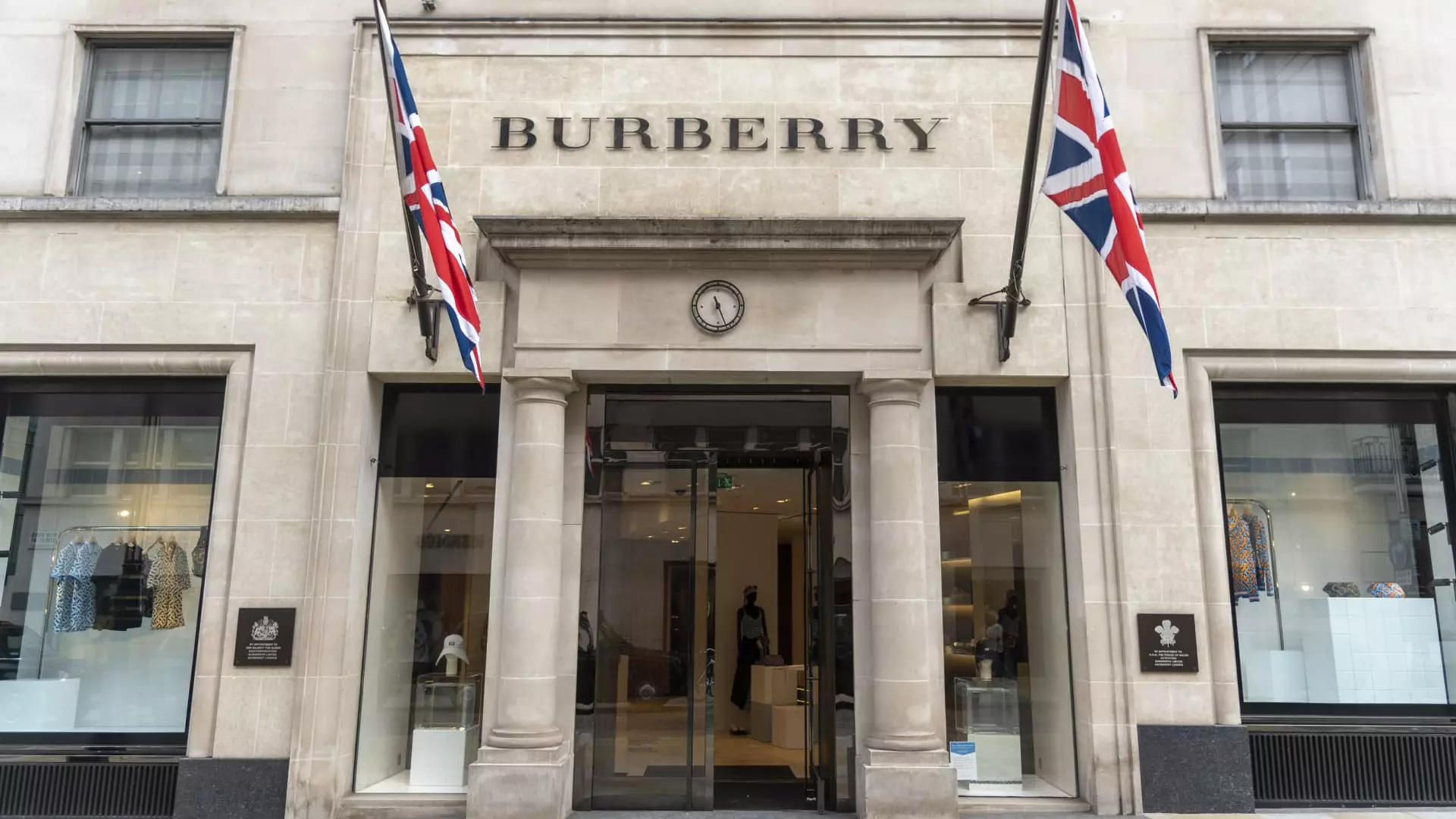British luxury fashion house Burberry Group’s recent drop from the U.K.’s FTSE 100 stock market index has brought to light a series of issues plaguing the 168-year-old retailer. With declining sales and numerous management changes, Burberry’s once strong position in the market has been eroded, leading to its exit from the prestigious FTSE 100 blue-chip index.
Founded in England in 1856, Burberry gained international recognition for its iconic trench coats, handbags, and check print. However, the brand’s image took a hit as its signature patterns became associated with the British working class in the 1990s and 2000s, leading to a decline in its high-end appeal. Despite efforts by successive CEOs to revamp the brand and elevate it to an upmarket status, Burberry’s market position continued to weaken.
The frequent turnover at the top leadership levels, with four CEOs in the past decade, has left investors wary. The recent appointment of Joshua Schulman as CEO signals a potential shift in strategy for the company. Analysts believe that Schulman’s background in leading brands like Coach and Michael Kors could help Burberry adopt a “British Coach” strategy focused on cost-cutting and expanding outlets.
Burberry’s financial troubles were highlighted by a 21% drop in first-quarter comparable store sales, leading to its third profit warning in 12 months and the suspension of dividend payments. Market analysts have warned of further share price declines unless significant changes are made. The possibility of a takeover looms if the company fails to address its weakening brand momentum.
Schulman is expected to unveil his strategy for Burberry in November, which could involve further changes at the top leadership levels. Speculation is rife about the replacement of the company’s chairman, Gerry Murphy, to facilitate a quicker implementation of Schulman’s plans. The luxury sector, as a whole, has been grappling with a slowdown in consumer spending, and Burberry’s struggles are indicative of broader challenges faced by luxury brands.
Burberry’s fall from the FTSE 100 index serves as a cautionary tale for luxury fashion brands. The company’s inability to adapt to changing consumer preferences and its failure to maintain a strong market position have contributed to its current predicament. With new leadership at the helm, Burberry has a chance to reinvent itself and regain its former glory, but the road ahead remains fraught with challenges. Ultimately, the fate of Burberry hinges on its ability to navigate the volatile luxury market and win back consumer confidence.

